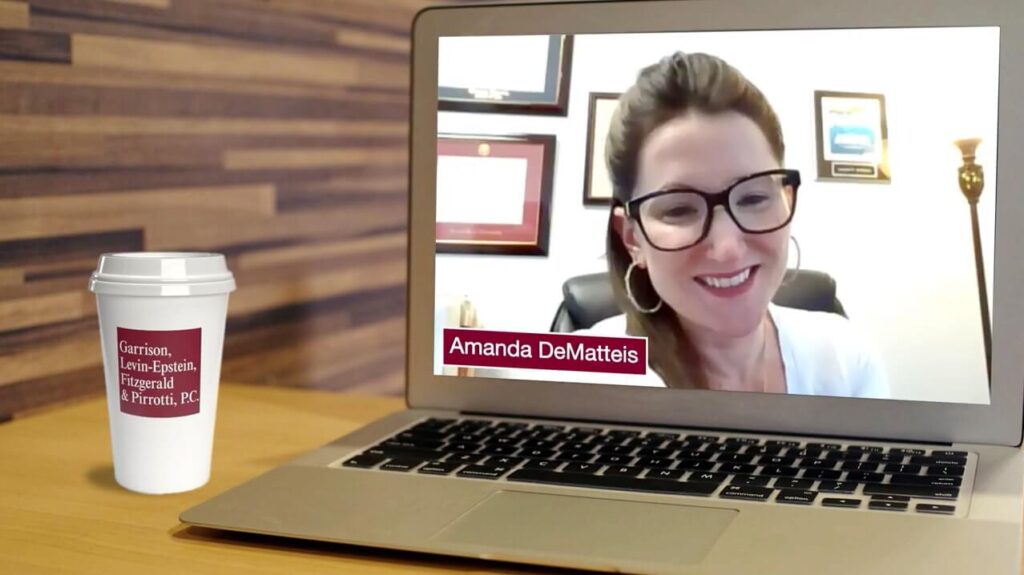Feb 8 2023
Summary: In Connecticut, recording laws depend on the type of communication. For in-person conversations, only one party needs to consent, and that can be you! Recording without any party’s knowledge or consent may be a Class D felony. However, for phone calls, all parties must consent. While laws do not clearly address video calls such as Zoom or Teams, it is safest to get consent from everyone involved. Most platforms prompt users to accept that the call is being recorded, which helps ensure compliance.
TRANSCRIPT
Amanda DeMatteis: Hi, Josh! What are we going to chat about today?
Josh Goodbaum: I thought we could talk about workplace recording, especially in light of changes in the way contemporary workplaces are functioning during and maybe after COVID. So, a lot of people are working from home. A lot more people are doing their meetings either by telephone or by Zoom or Teams or some other video conferencing technology. And a lot of people who work in Connecticut and around the country are concerned about their employers recording some or maybe even all of what they’re doing. So, what should employees know about workplace recording?
DeMatteis: Workplace recordings, by themselves, aren’t something new. We’ve been getting these questions as employment lawyers for a long time. “Hey, can I record my boss who’s treating me a certain way?” “Can I record my boss or a co-worker who’s sexually harassing another co-worker?” – whatever it may be. Let’s review the answer to those questions and then kind of jump into what that means for our post-COVID workforce we find ourselves in.
So, let’s remember that, in Connecticut, we are a one-party consent state. What that means, is if you are having an in-person communication with other people – a face-to-face conversation with other people – only one party that is a part of that conversation needs to consent, needs to be aware that it is being recorded. So, if you are a party to that conversation, you’re the one recording it – you are the one party that has given consent for the communication to be recorded – there’s absolutely nothing wrong with that at all. If, however, a communication – even if it’s in person – is being recorded and no party consents to it, that can be a Class D felony in Connecticut for eavesdropping. So, there could potentially be criminal liability there.
That’s different when it comes to a telephone conversation. So, whereas an in-person conversation, one party consent. Telephone conversation, everybody has to consent. And if you don’t get the consent of people on a telephone call for that communication to be recorded, that too can be a criminal offense – Class D felony for eavesdropping in Connecticut.
Well, how does that work for Zoom, and Teams, and Skype, and all these other video recordings that we’re dealing with every day at work in this post-COVID workforce that we’re in?
Well, the Connecticut Eavesdropping Law is silent as to video recordings. It simply doesn’t mention it. Maybe it’s because it was written before all of these video recordings were becoming so second nature. But to be really, really safe, you’d want to operate as if it was a telephone conversation, right? And you want to make sure that every single party to that video recording consents to being recorded. Now, some of these platforms do this for us. We might see a pop-up that comes up that says it’s being recorded. You may actually have to click on a particular pop-up to authorize your consent for that recording.
As a Connecticut employee though, here’s what you need to know. If you are on a telephone call or you are being video recorded, your employer has to tell you whether or not they are recording you. But if it’s an in-person communication and an in-person conversation, it’s one-party consent. That can be you, or it can be your employer.
Goodbaum: Really great information, Amanda. Thanks so much for that. Thanks, everybody, for watching.
DeMatteis: Take care.
Posted by Garrison, Levin-Epstein, Fitzgerald & Pirrotti, P.C. in Commentary
Tagged Amanda DeMatteis, Joshua Goodbaum









